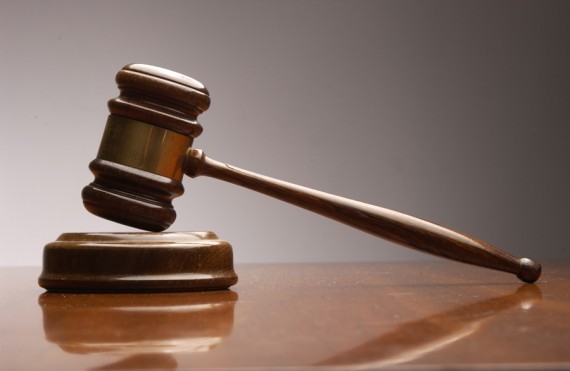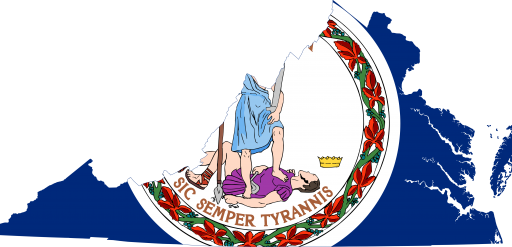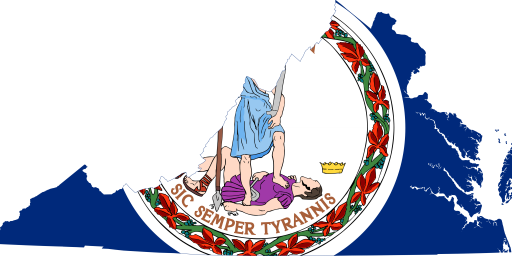Virginia To Seek Expedited SCOTUS Review Of Lawsuit Against Individual Mandate
Virginia will petition the Supreme Court to bypass the normal appellate process and hear the appeal of its lawsuit against the Affordable Care Act early.
Virginia’s Attorney General announced today that he will petition the Supreme Court to accept a direct appeal of the state’s lawsuit challenging the constitutionality of the Affordable Care Act:
Virginia Attorney General Ken Cuccinelli is asking the Supreme Court to immediately review his state’s challenge to the health reform law.
Cuccinelli chose to file an independent challenge to the Affordable Care Act rather than join the multistate suit led by Florida, and the ruling in his case came a month before Florida District Judge Rodger Vinson struck down the entire law on Monday.
Announcing this petition days after the Florida ruling suggests he may be concerned the other case may make it first to the nation’s highest court.
“Presently, 28 states have filed suits challenging the authority of Congress to enact this law,” Cuccinelli in a statement making the case for SCOTUS to waive the normal appeals process. “That, in and of itself, is exceptional and makes the cases excellent candidates for immediate review in the Supreme Court.”
Department of Justice spokesperson Tracy Schmaler noted in a statement that Virginia’s case is based on a law passed by the state’s legislature designed to exempt the Commonwealth’s citizens from the individual mandate. Because “Virginia’s suit is based on a state statute that is not applicable nationwide” and the individual mandate will not take effect until 2014, “there is more than sufficient time for this case to proceed first in the court of appeals.”
Direct appeals to the Supreme Court are not a matter of right (of course neither is nearly any appeal to the Supreme Court), and is governed by the Court’s Rule 11:
A petition for a writ of certiorari to review a case pending in a United States court of appeals, before judgment is entered in that court, will be granted only upon a showing that the case is of such imperative public importance as to justify deviation from normal appellate practice and to require immediate determination in this Court.
Cuccinelli argues that the Rule 11 exception should apply in this case:
“Rule 11 is the exception to the general rule, but this case and the other cases challenging the constitutionality of PPACA are truly exceptional in their own right. There are a number of suits pending throughout the country challenging the constitutionality of PPACA. Presently, 28 states have filed suits challenging the authority of Congress to enact this law. That, in and of itself, is exceptional and makes the cases excellent candidates for immediate review in the Supreme Court.
“We did not make this decision lightly. Given his unique responsibilities to fund and implement PPACA as Governor of Virginia, Governor McDonnell is particularly concerned about the possibility of wasting precious and strained taxpayer dollars preparing for a law that may well be struck down. Recognizing the tremendous amount of time and resources that are and will be expended to implement a law that two federal judges have ruled contains unconstitutional provisions, Lieutenant Governor Bolling and Speaker Howell have joined the governor in requesting that my office seek expedited review. Additionally, I have been encouraged to attempt to expedite this case by Democrats as well as Republicans in Virginia’s General Assembly, and of course, the bipartisan passage of Virginia’s Health Care Freedom Act last year was the very first step in this entire process here in the commonwealth.
“Despite the fact that the Department of Justice has not agreed to join in a Rule 11 motion, in a filing with the U.S. Court of Appeals for the Fourth Circuit to set an expedited schedule for its appeal of Virginia’s district court victory, the Justice Department stated, ‘The constitutionality of [PPACA] has public policy implications of the highest magnitude.’ In other words, according to the Justice Department itself, a case cannot have public policy implications that are more important than this case. We agree and feel that reinforces the fitting nature of our request for immediate review in the Supreme Court,” Cuccinelli said.
The Supreme Court rarely grants expedited appeals, so history dictates that one assume they won’t do so here. However, if they do, then the possibility exists that the Court could end up having a significant impact on the 2012 elections:
A Supreme Court ruling that supports the mandate still leaves President Obama and his Democratic allies with an unpopular bill under political siege in the Republican-controlled House, no worse or better off than before a final court ruling. Such a ruling might even provide more motivation to the opposition to gain control of the Senate and White House to reverse the PPACA entirely through legislative action.
An adverse ruling by the Supreme Court before the 2012 election would be an unequivocal disaster, however. President Obama and his fellow Democrats spent almost half of the 111th congressional session fiddling on health care while the economy burned, which destroyed their credibility in the midterm elections last fall. They insisted that their work would pass constitutional muster even as the mandate fueled the rise of the Tea Party and came to embody all of the arrogance and elitism of big government, nanny state. A ruling that overturns even just the mandate means that they tossed away their House majority and all of their political momentum for nothing.
What’s more, it will increase the prestige and the credibility of those who fought the passage of the PPACA and who later vowed to repeal it entirely and start reform over from scratch. And that could come just as President Obama runs for re-election and Democrats desperately try to preserve their Senate majority as they defend 13 more seats than Republicans.
That would seem to be the likely outcome. and it explains why the GOP is continuing to hammer the Democrats with health care reform opposition.
It takes four justices to accept a case for appeal, so it will be interesting to see how they handle this request.






Would the Court join the Virginia case to the case decided in Florida filed by the 28 states should it decide to hear the matter now?
It might get thrown out, flat. See, The Ghost that Slayed the Mandate:
Being appointed to the Supreme Court is very liberating. The Court is under no obligation to be popular, consistent, coherent, comprehensible, or even rational. Concern for the Court’s reputation has tended to make the Court’s decisions most of those things or, at least, several of them.
But there’s no obligation. And remember: the law of the land is whatever a majority of Supreme Court justices says it is.
Or in other words, it’s all about the politics….not the policy.
Hi Doug,
Should the word in the title be “Expedited”, or have I learned a new word today?
Rick
You are correct of course. I am having a Fail of a day when it comes to spelling
“Announcing this petition days after the Florida ruling suggests he may be concerned the other case may make it first to the nation’s highest court.”
Yah… can anyone else say “feathering one’s nest?”
“Virginia’s case is based on a law passed by the state’s legislature designed to exempt the Commonwealth’s citizens from the individual mandate.”
We have already discussed the stupidity of the principle of “nullification”….
“Rule 11 is the exception to the general rule, but this case and the other cases challenging the constitutionality of PPACA are truly exceptional in their own right.”
Yah, they are exceptional, 2 judges ruled for the suits, 2 judges ruled against, and 12!!!! dismissed out of hand…. If this were a football game the score would be 50-14….
Really… why would I accept the 2 conservativew juidges opinion and not the other 14???
SOMEBODY PLEASE ANSWER THIS QUESTION…. (sorry for the all caps, but it seems EVERYBODY here would rather pretend it was never asked)
Over at Balkan they have absolutely savaged Vinson, and even over at Volokh nobody comes to Vinsons defense whole heartedly (Orin Kerr seems to think he is WRONG!!!!!!!!!)